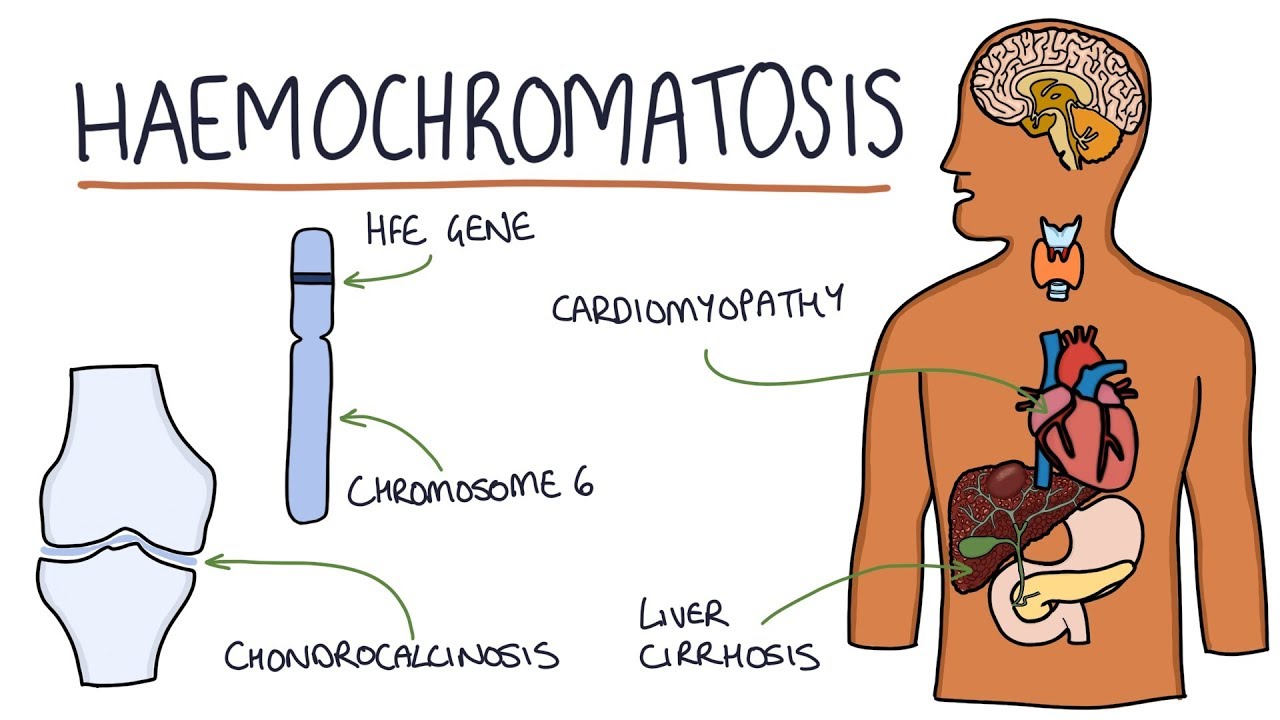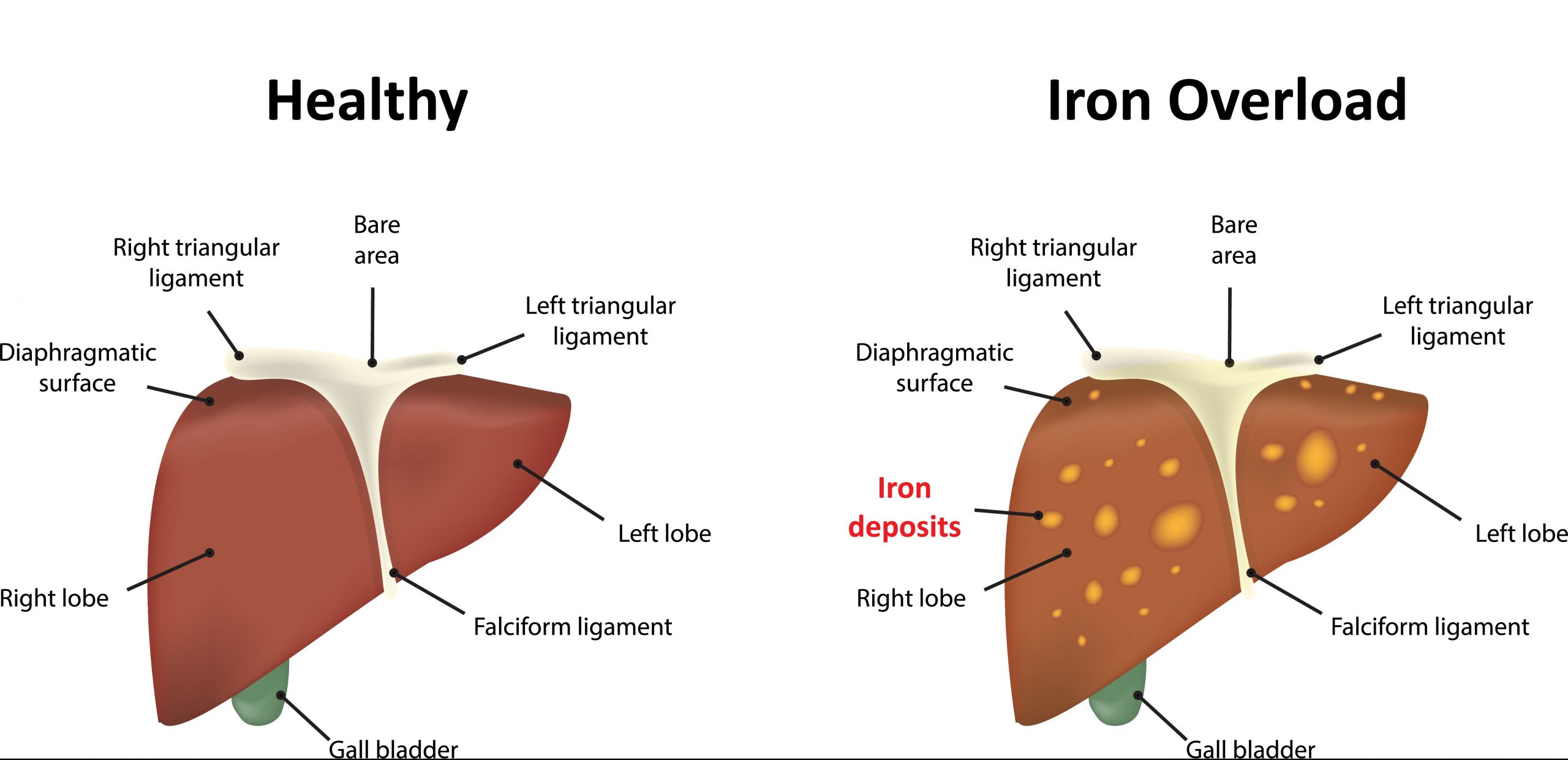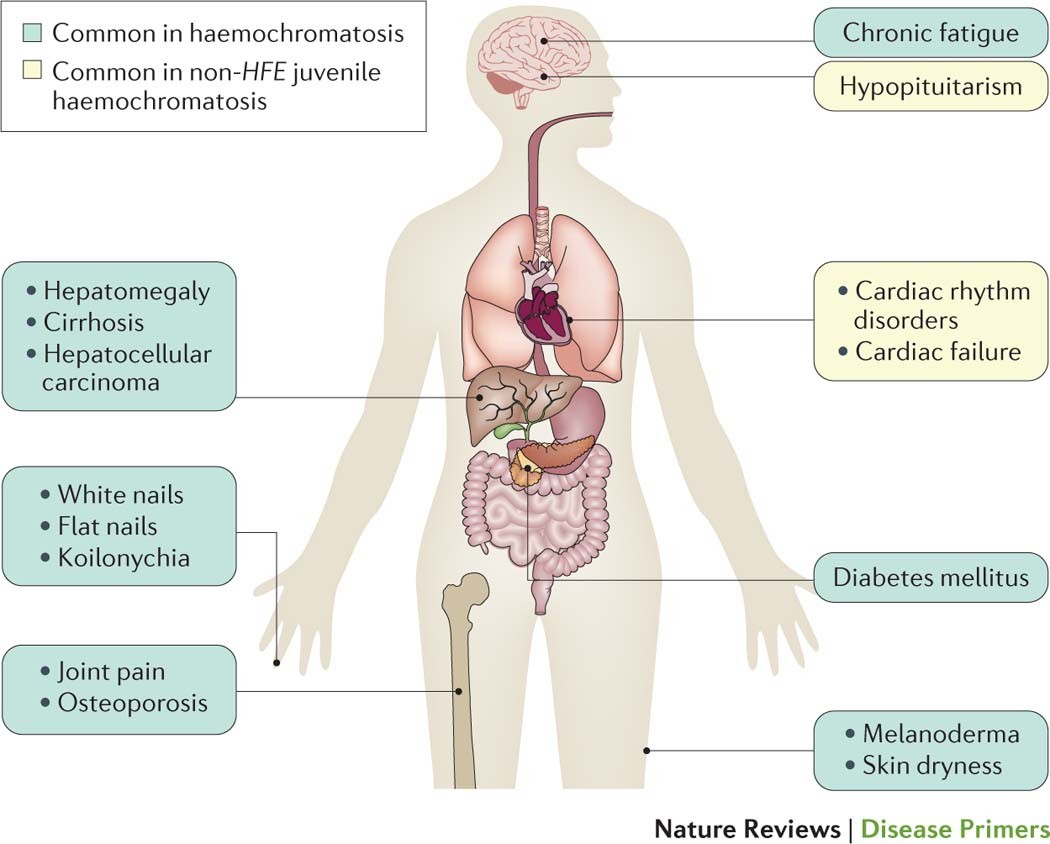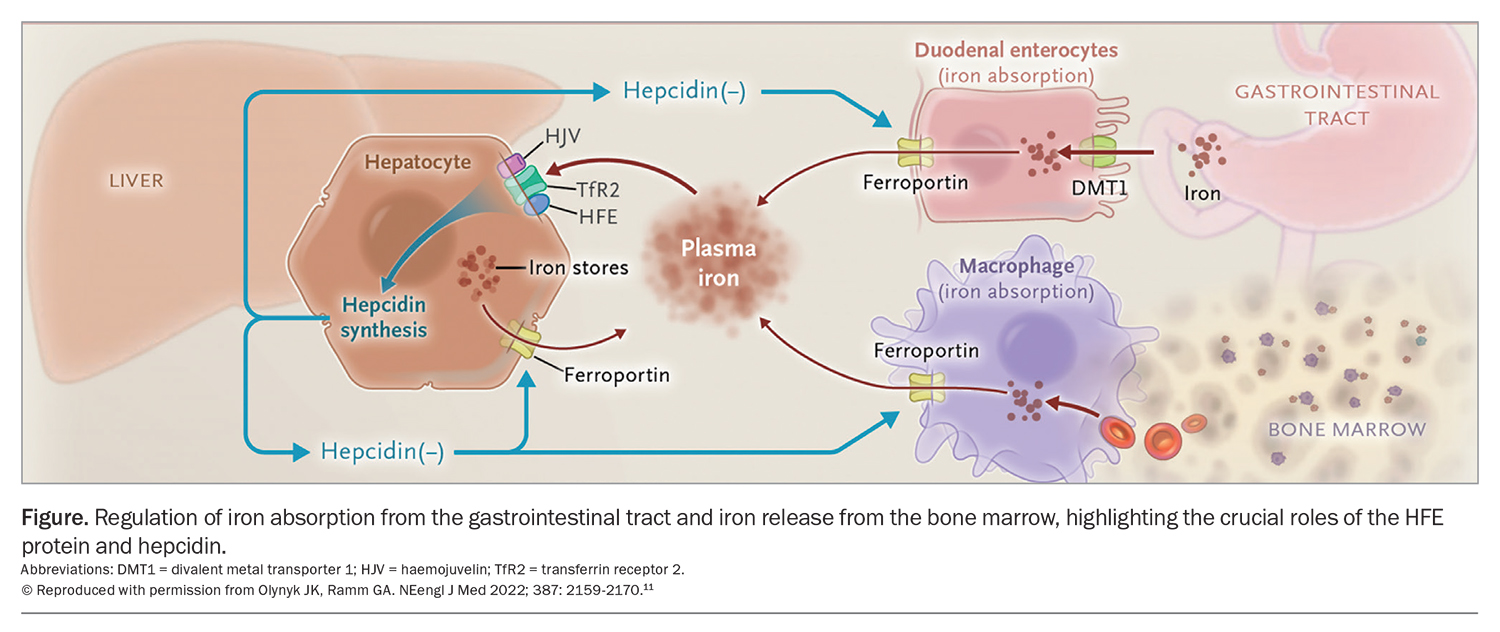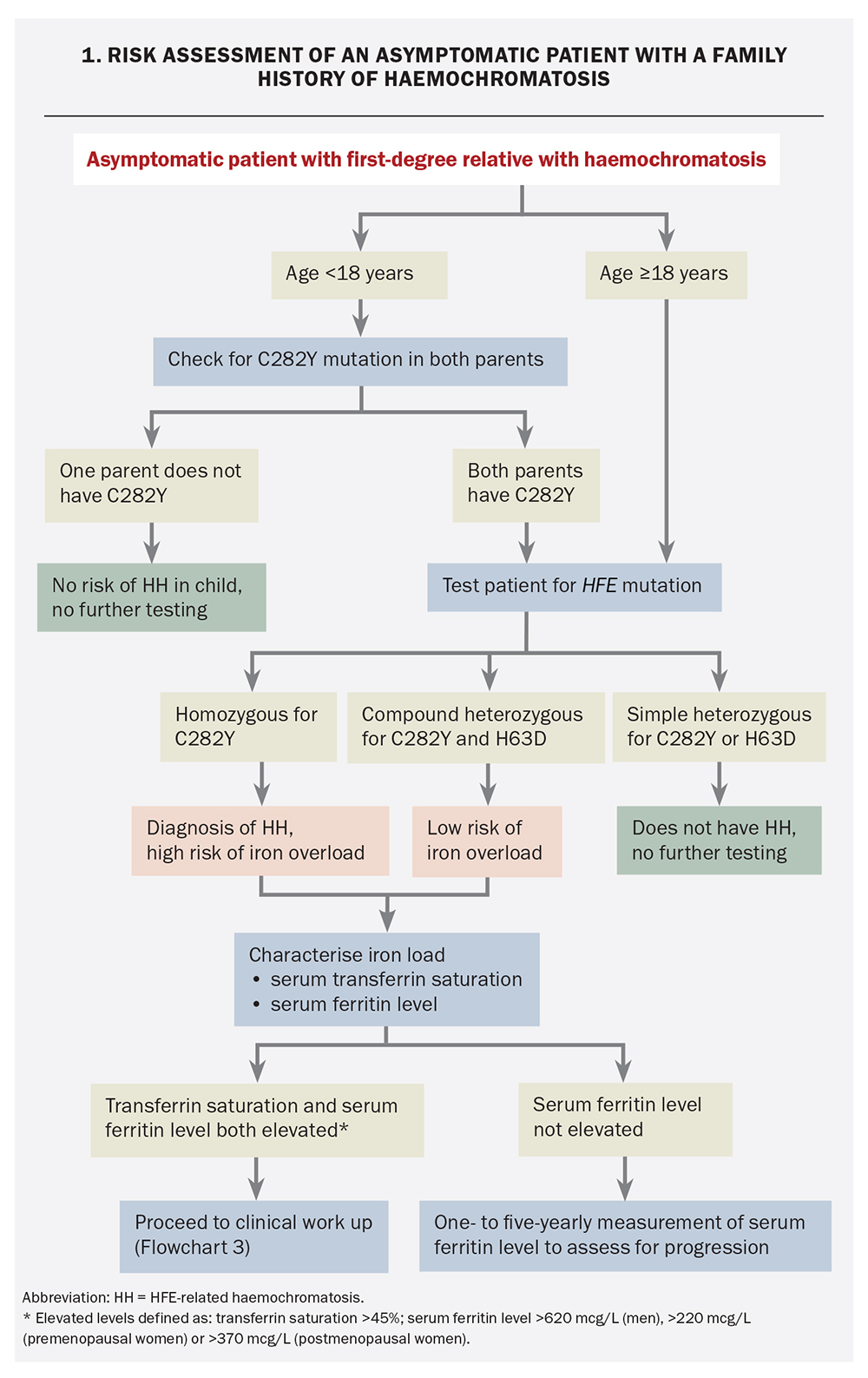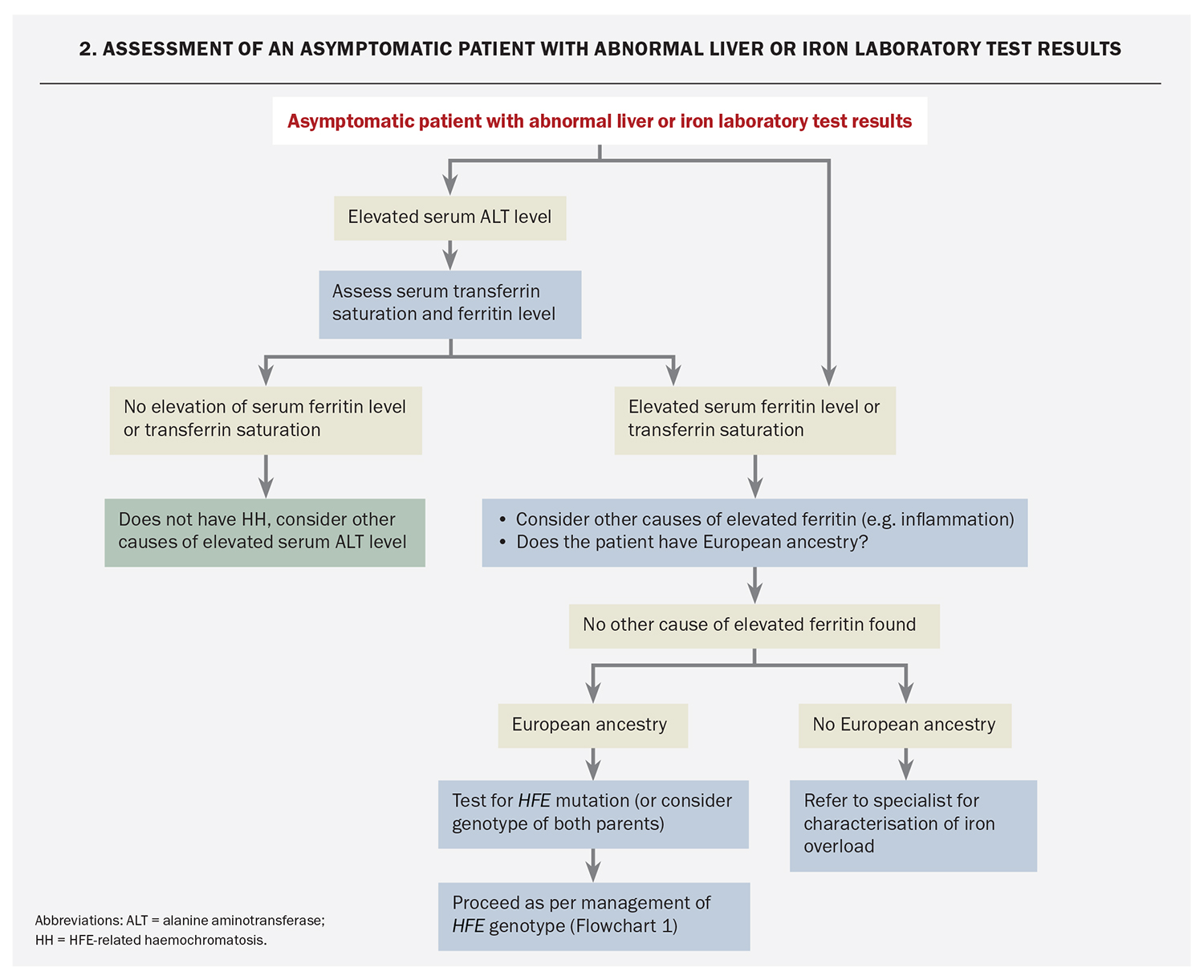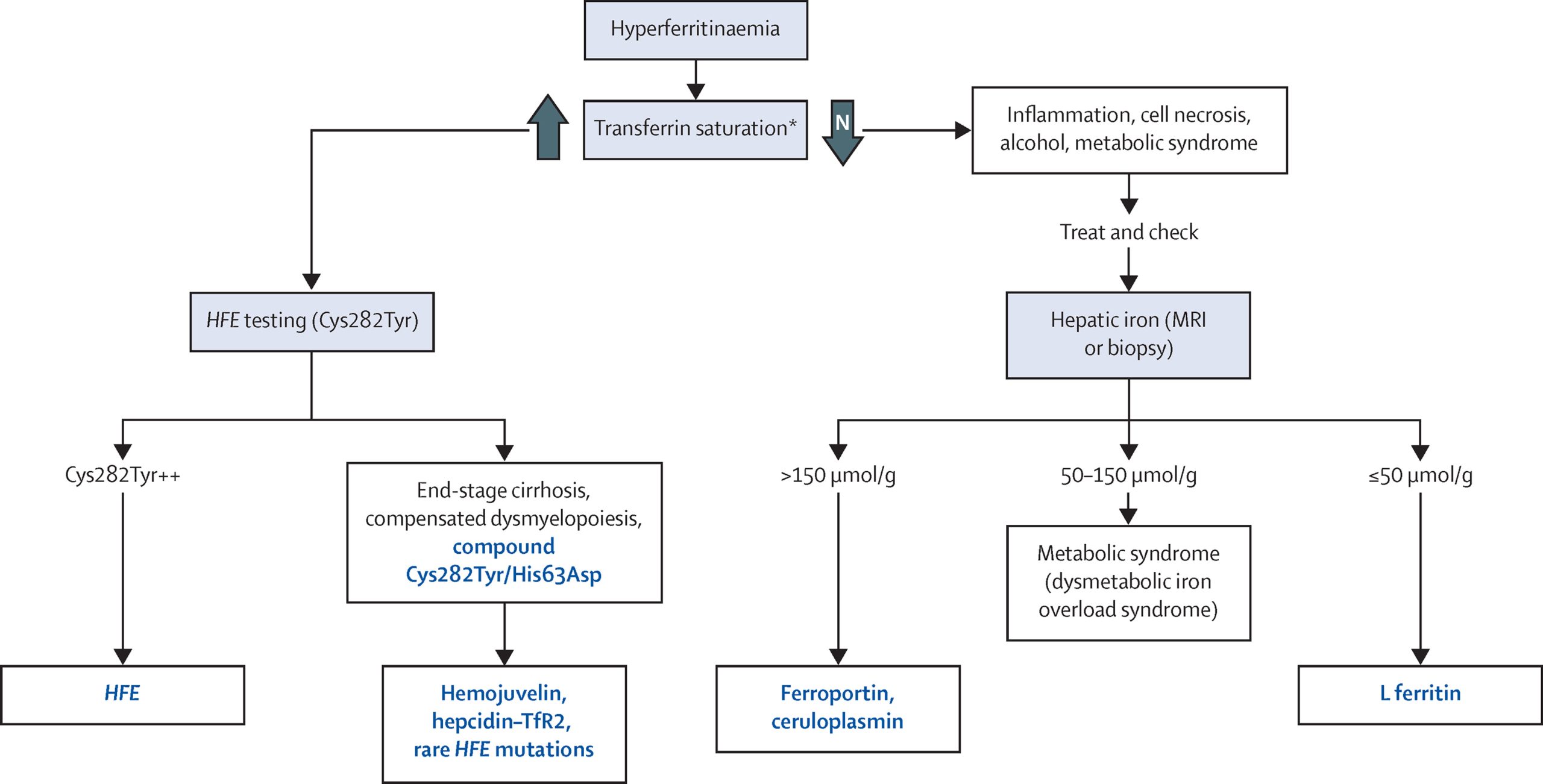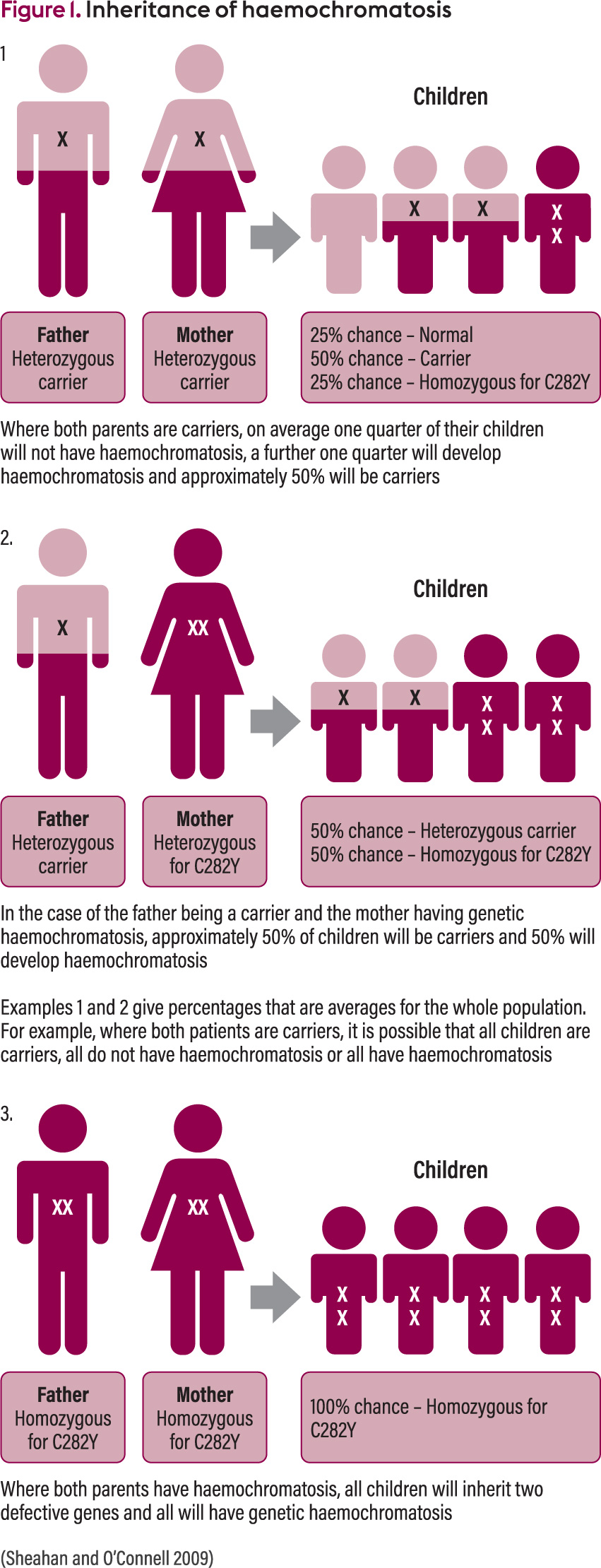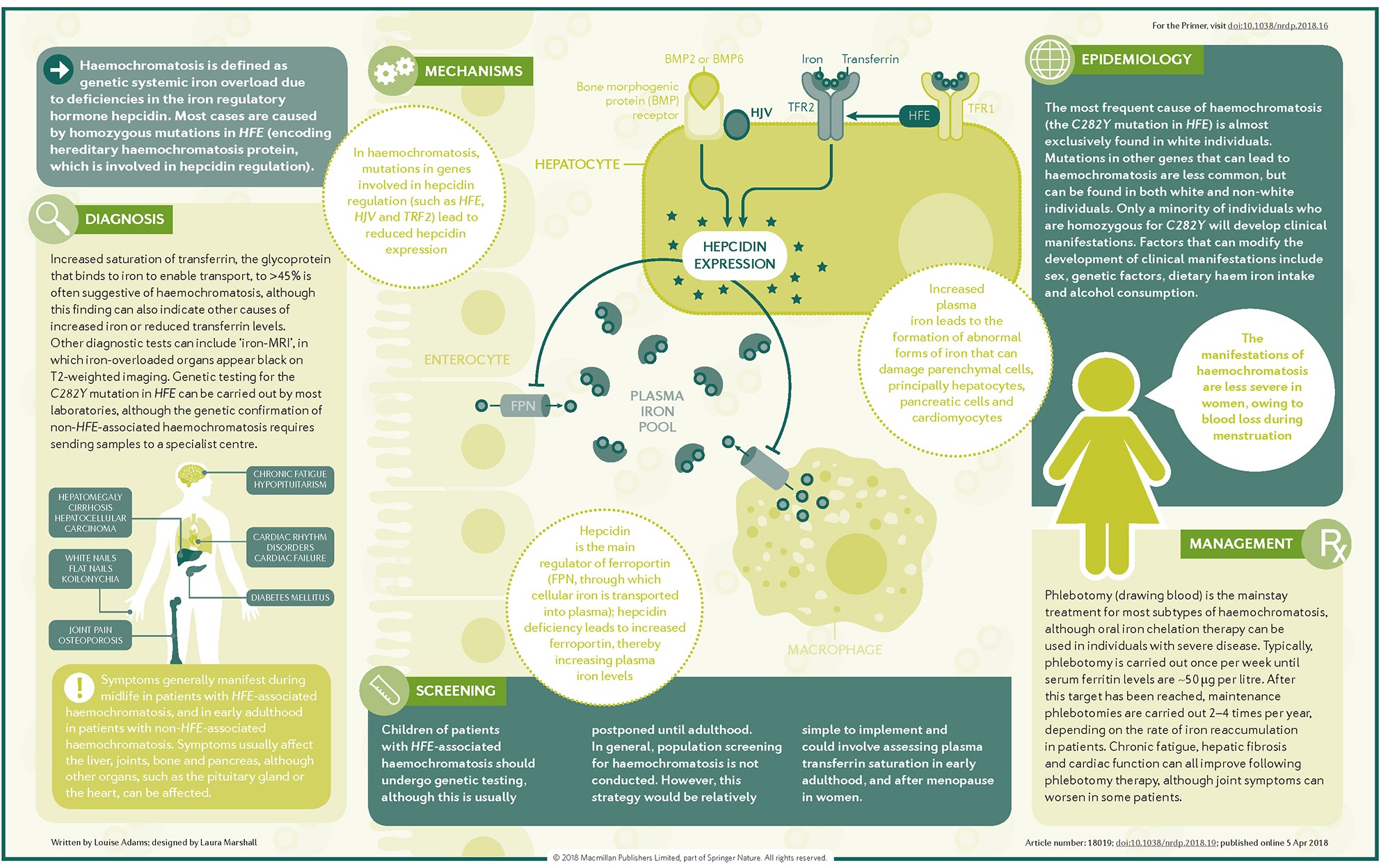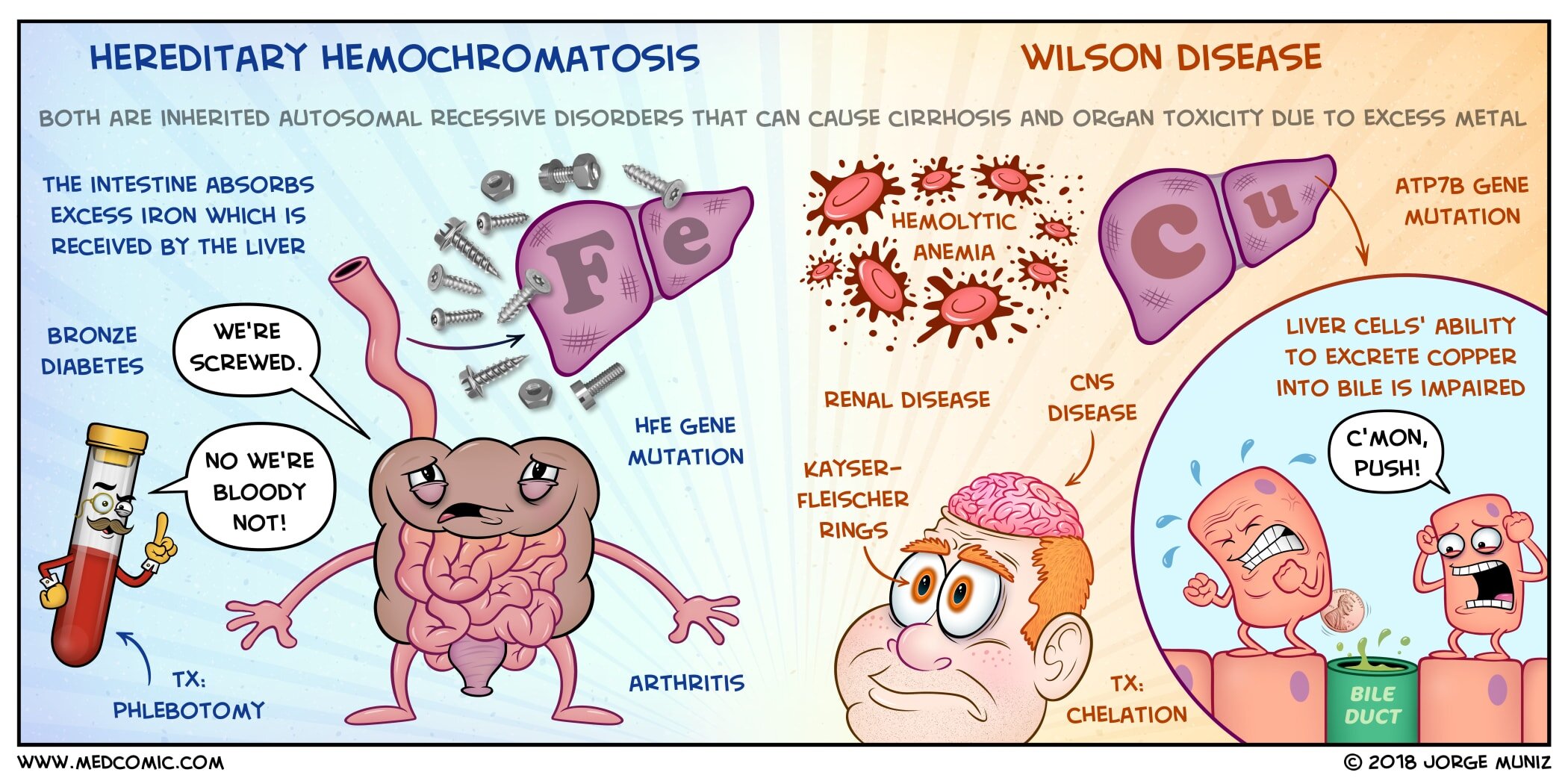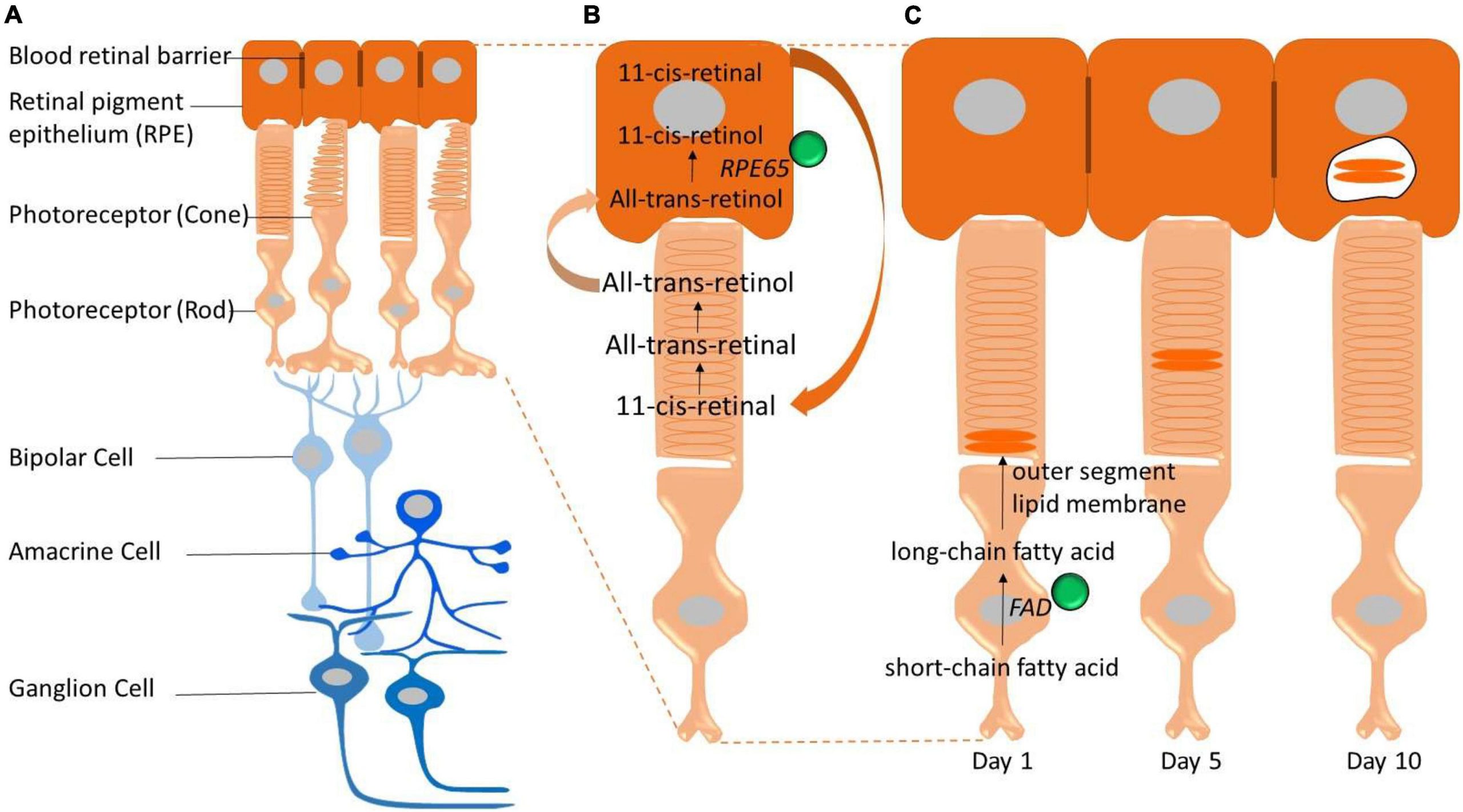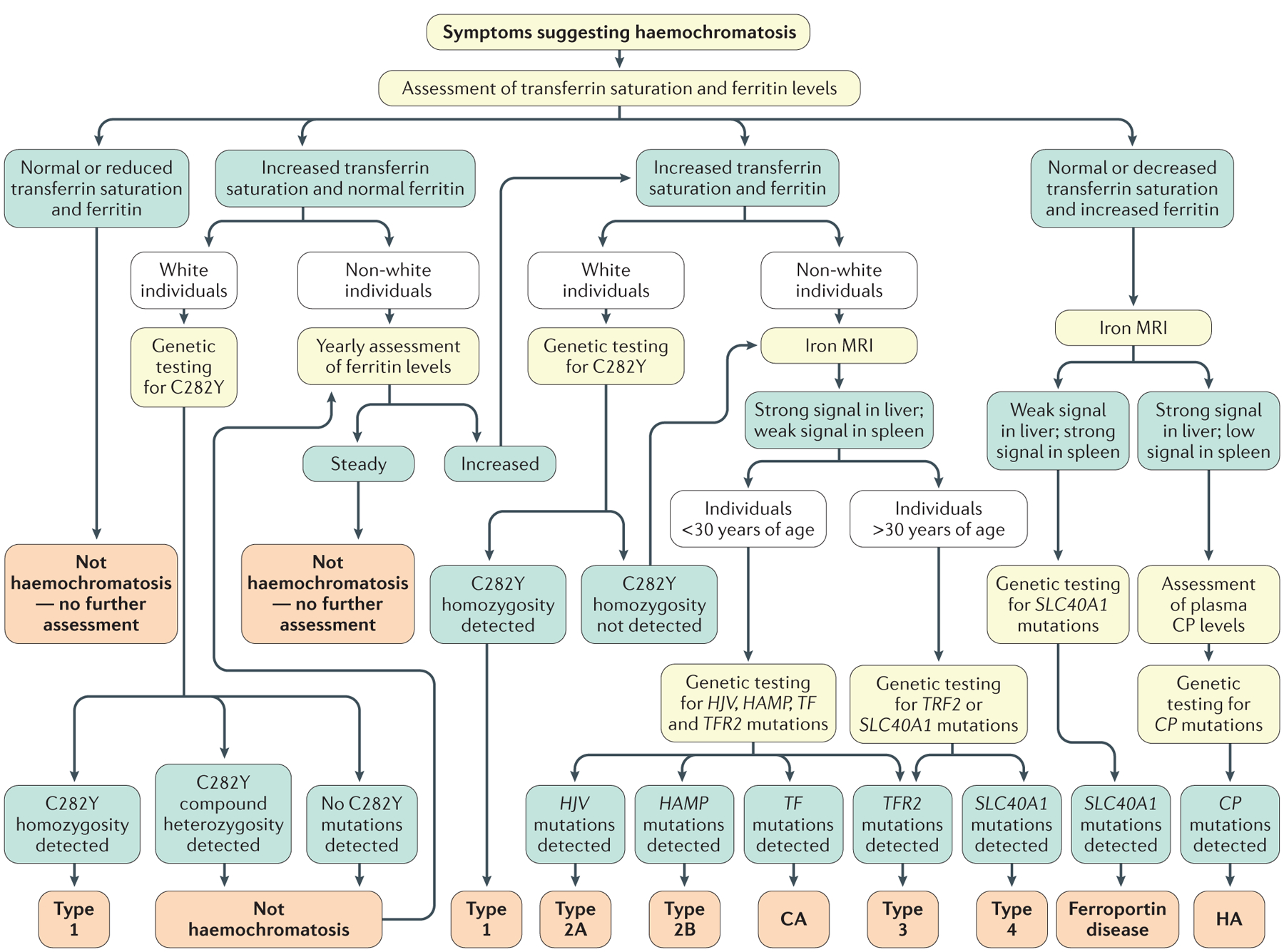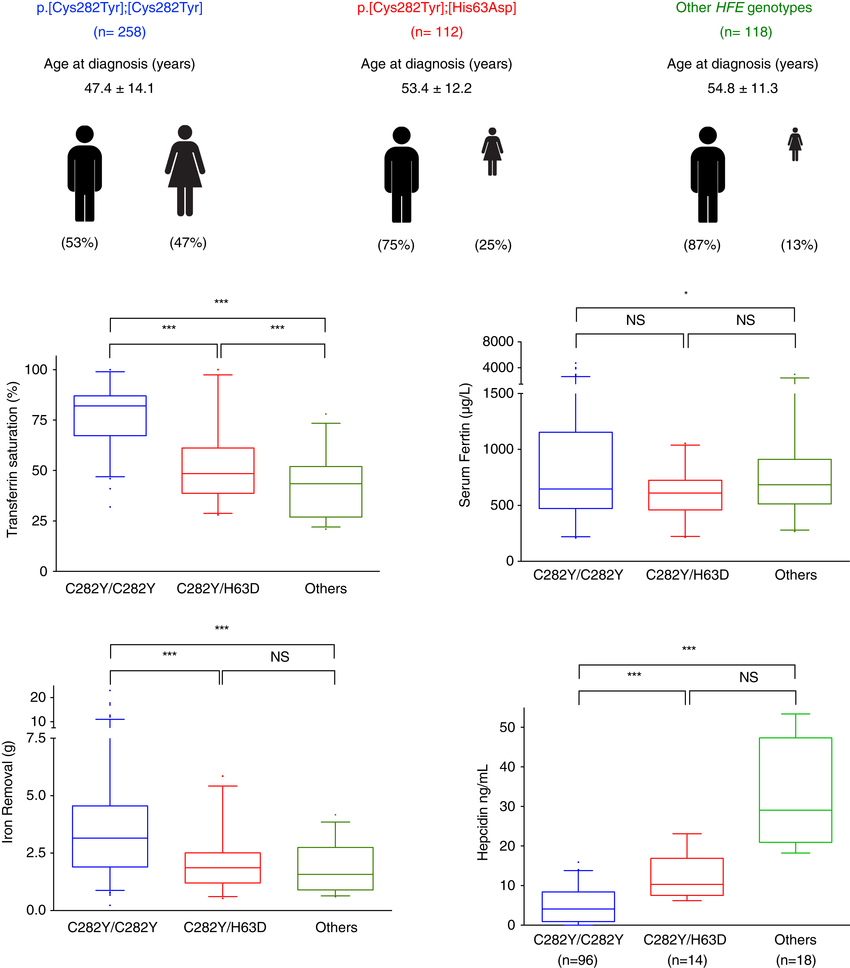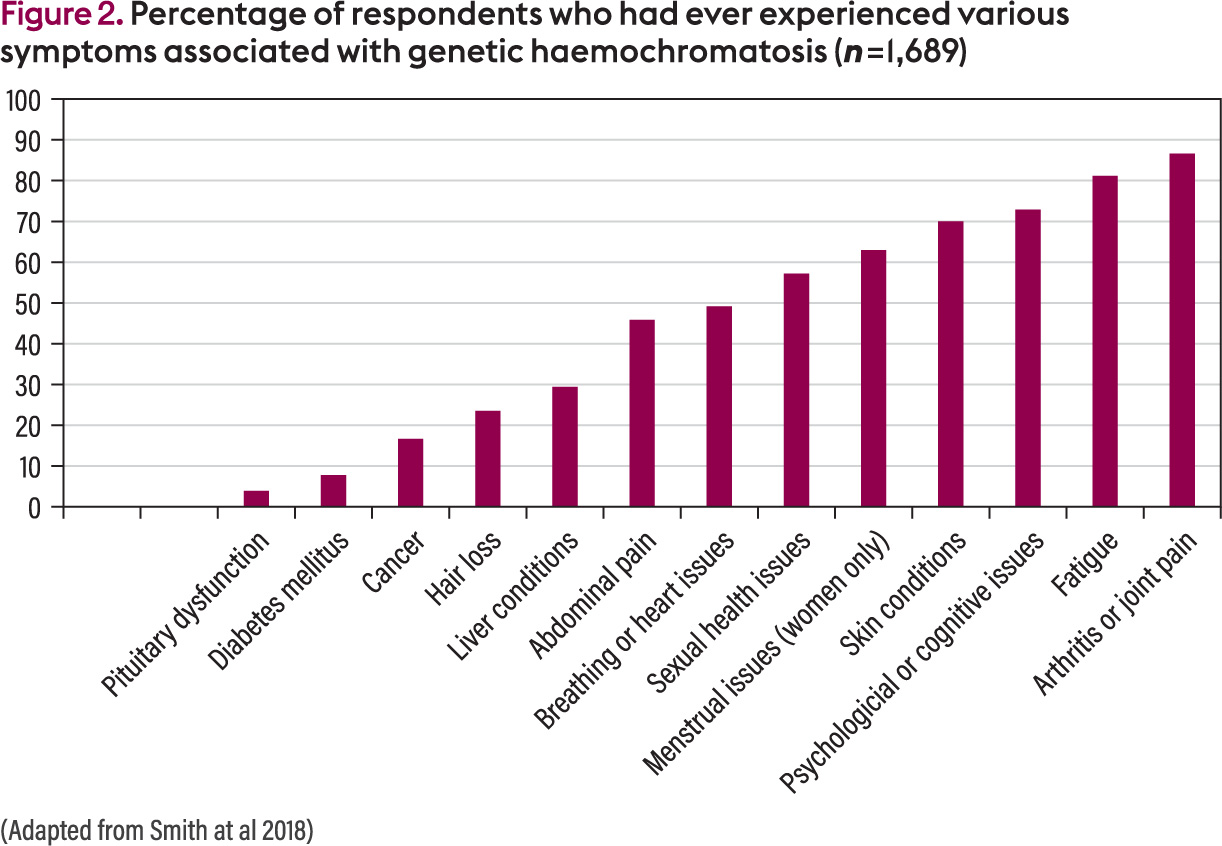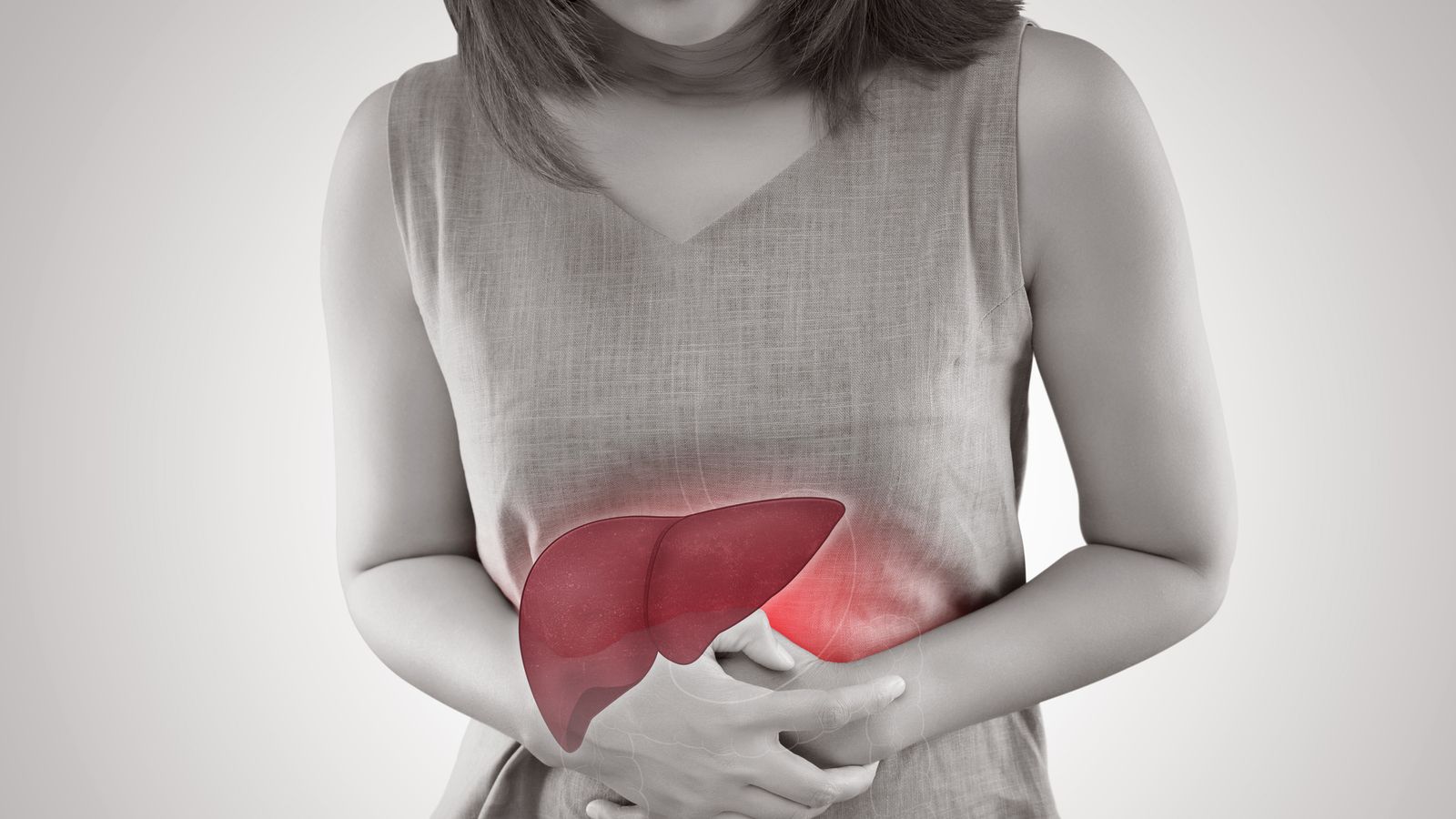
What is haemochromatosis?
Haemochromatosis is an inherited condition that causes the body to absorb and store too much iron. In some cases of haemochromatosis, the extra iron can lead to organ damage.
In people with haemochromatosis, too much iron is absorbed from the gut, leading to iron overload.
The human body controls iron levels by absorbing just the right amount of iron from food. It has no method of excreting excess iron — any excess is stored in organs and joints in the body. This can lead to damage to the liver, heart, pancreas, thyroid and other organs.
What are the symptoms of haemochromatosis?
Most people develop symptoms between 30 and 60 years old. Early on, most people have no symptoms.
Symptoms may include:
- tiredness
- weakness
- infections
- pain in the abdomen
- pain in the joints
- unexplained tanning of the skin
- hair loss
- shortness of breath
Without treatment, organ damage can lead to:
- liver problems
- diabetes from damage to the pancreas
- heart problems
- loss of sex drive or erection problems
- problems conceiving a baby
- not having periods
- thyroid problems
What causes haemochromatosis?
Haemochromatosis is the most common genetic disorder in Australia. It is caused by an abnormal gene or genes, carried by 1 in 200 people of northern European origin. This gene or genes is inherited from one or both parents.
People who carry the abnormal gene or genes might have haemochromatosis, or they might not.
Can I be screened for haemochromatosis?
Yes, if someone in the family has haemochromatosis, you can have genetic testing to see if you carry the gene.
How is haemochromatosis diagnosed?
A blood test can show much iron is in the blood. Haemochromatosis is not the only cause of having too much iron in the blood. Other tests will be needed, such as genetic testing.
Sometimes a liver biopsy (taking a small tissue sample) is done to see if there is damage to the liver.
How is haemochromatosis treated?
There is no cure for haemochromatosis, but treatments can keep it under control.
You can help maintain your health by:
- following a low iron diet, if suggested by your doctor
- avoiding vitamin C supplements, as these increase iron absorption
- limiting alcohol consumption or stopping drinking alcohol completely if your liver is damaged
You might also be advised to have some blood taken out of your body regularly. This is known as venesection or phlebotomy. If it is done regularly, venesection lowers the iron levels and can lead to an improvement in health.
